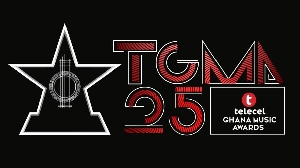General News of Sunday, 23 February 2020
Source: ghanafact.com
Fact-check: 5 claims Akufo-Addo made during State of the Nation Address
President Nana Akufo-Addo delivered his fourth State of the Nation Address before parliament in accordance with Ghana’s 1992 Constitution on February 20.
The about 1-hour 30-minute address, which is his last State of the Nation’s address of his four-year term in office touched on the Ghanaian economy, foreign relations, tourism, peace and security, agriculture, corruption and other sectors.
In this report, we would verify 5 key claims made by President Nana Akufo-Addo during his address.
Claim: Nigeria has closed its land borders for the past five months
Verdict: True
President Akufo-Addo said:
“I cannot ignore the difficulties that currently exist in ECOWAS, especially with Nigeria, our age-old friend and largest member nation, closing its land borders for the past five months.”
Fact-check
In August 2019, Nigeria’s President Muhammadu Buhari ordered the closure of its land border with Benin to imported goods.
According to the Nigerian authorities, this was part of efforts to tackle smuggling and stimulate the domestic agricultural industry.
Subsequently, on October 14, the initial partial border closure was expanded into a total shutdown in trade with all other countries across Nigeria’s land borders.
This has meant a ban on both legitimate and illegitimate movement of goods in and out of Nigeria with no timeline for reopening the borders.
So, the claim by the President is true.
Claim: Current inflation at its lowest level since 1992
Verdict: True
President Akufo-Addo said:
“Mr Speaker, in three years we have reduced inflation to its lowest level (7.8% in January 2020) since 1992.”
Fact-check
According to the Ghana Statistical Service, inflation as at January 2020 stood at 7.8%.
This rate of inflation for January 2020 is the percentage change in the Consumer Price Index (CPI) over the twelve-month period, from January 2018 to January 2019.
Further, World Bank data shows the lowest level of inflation since 1992 is not 7.8% but rather 7.12% recorded in 2012.
This, however, is contrary to the Ghana Statistical Service data on the inflation rate for 2012, which pegs it at 8.8%, making the claim by the President true.
Claim: Fiscal deficit below 5% of GDP for three years in a row
Verdict: False
President Akufo-Addo said:
“For the first time in over forty (40) years, we have had a fiscal deficit below five per cent (5%) of GDP for three years in a row.”
Fact-check
In 2016, the IMF said overall fiscal deficit (on a cash basis) deteriorated to an estimated 9% of GDP or 6.8% of rebased GDP. Subsequently, in 2017, the fiscal deficit recorded was 6% of GDP or 4.7% of rebased GDP.
According to the government, in 2018 and 2019 the fiscal deficit (on cash basis) recorded were 3.8% and 4.8% respectively. However, it is worthy of note that the computation by government excluded the cost of the one-off financial sector bailout.
According to the International Monetary Fund after including energy and financial sector costs, Ghana’s fiscal deficit in 2019 was 7% of GDP. In the preceding year, the IMF using data sourced from the Ghana government said overall fiscal deficit, including financial sector costs, was 7% of GDP.
If the figures from the IMF is anything to go by, the government is in breach of the Fiscal Responsibility Act [passed into law in December 2018] that limits the fiscal deficit in any year to a maximum of 5% of GDP.
This claim is rated false and the government needs to explain the reasoning behind its decision to exclude the financial sector cost in computing the fiscal deficit figures or it would amount to cherry-picking data for a parochial gain.
Claim: In 2018, Ghana was the largest recipient of foreign direct investment in West Africa
Verdict: True
President Akufo-Addo said:
“The international investor community has recognized this development, resulting in Ghana, today, being the largest recipient of foreign direct investment in West Africa.”
Fact-check
Ghana became the largest Foreign Direct Investment (FDI) recipient in West Africa, according to the World Investment Report 2019.
The country is estimated to have received investments of about 3 billion dollars, which is 8% below FDI inflows for the year before.
Most of the FDI is oriented towards gas and minerals, with the largest greenfield investment project coming from Eni Group, which is set to expand the Sankofa gas fields.
The claim by the President is hence rated true.
Claim: Agric growth rate has moved from 2.9% in 2016 to 6.4% in 2019
Verdict: Unproven
President Akufo-Addo said:
“It bears repeating that agriculture was very much in the doldrums when we came into office, with a growth rate of 2.9%. We introduced the programme for Planting for Food and Jobs and set about to make agriculture an attractive profession. We invested resources, expertise and time, and the results have been impressive and rewarding. The growth rate in 2017 was 6.1%, and this increased to 6.4% last year.”
Fact-check
The 2016 and 2017 figures mentioned by the President are consistent with data released by the Ghana Statistical service captured in the Provisional 2006 to 2018 Rebased Annual Gross Domestic Product report.
But it should be noted that the agricultural sector declined in 2018 to 4.8%.
The 2019 growth rate figures for the Agricultural sector are meanwhile yet to be published by the GSS so it is curious the 6.4% figure being quoted by the President.
According to the 2020 budget statement, growth in the Agriculture Sector in the first half of 2019 was 2.7%. Subsequent data released by the GSS shows that in the third quarter the Agric sector recorded the highest growth of 5.9 per cent.
Meanwhile, the annual growth rate figure for the sector is expected to be released by the Ghana Statistical service at the end of the first quarter of 2020.













